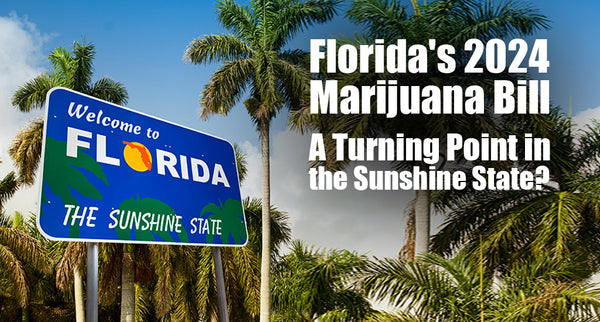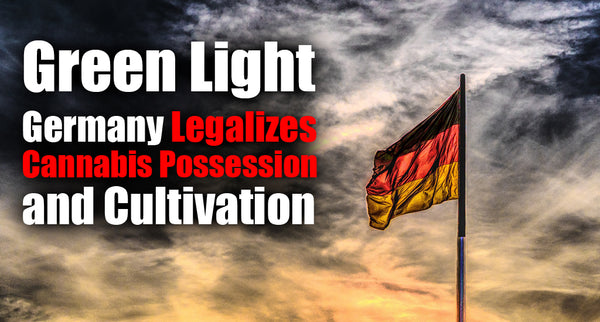
Understanding Japan's Unique Approach to Cannabis: Legal Nuances and Future Prospects
In Japan, possession or sale of cannabis can lead to imprisonment for up to seven years. Curiously, while using cannabis recreationally remains legal, so does the possession, trading, and consumption of synthetic cannabinoids that mimic the cannabis high without containing THC, the natural psychoactive compound. This article delves into Japan's distinctive approach to cannabis regulations, delving into the current legal status and potential trajectories for the future.
Japanese Cannabis Laws: An Intricate Web
In Japan, a region historically known for its stringent drug laws, a surge of interest in partial or full cannabis legalization has swept through Asia. While some countries are embracing legalization, others are maintaining strict prohibition. Observers note that Japanese lawmakers are gearing up to debate the nation's cannabis laws in the upcoming parliamentary session, expected to convene in October. Despite hopes for greater acceptance of cannabis for medical purposes, it is widely predicted that authorities will focus on curbing recreational use and closing existing legal loopholes.
Navigating Cannabis Regulations in Japan
The current state of cannabis regulation in Japan is marked by an intriguing paradox. The country has a rich tradition of cannabis farming, where hemp has been utilized in diverse ways such as garment-making, seasoning, and religious practices. However, this tradition came under scrutiny after World War II, when U.S. occupying forces advocated for a cannabis ban. The result was the 1948 Cannabis Control Act, which outlawed most aspects of the hemp plant, except for mature stems and seeds, believed to be devoid of psychoactive compounds at the time. While the Act criminalizes various aspects of marijuana, consumption remains unaddressed. Authorities and local media suggest that this omission aims to prevent the inadvertent penalization of farmers who might experience a high from inhaling their cannabis crops.
Understanding the Origin of Cannabis Regulations
"The Cannabis Control Act was established in 1948 as a reconciliation between the protection of cannabis farmers and the demand from the [U.S. forces] to pursue total prohibition," explains Michiko Kameishi, a prominent Osaka-based lawyer known for her defense in cannabis cases.
The declining number of hemp farmers in the country has contributed to the ambiguity surrounding the legal use of cannabis. For instance, Naoko Miki, co-founder of Green Zone Japan, a cannabis legalization advocacy group, notes that police cannot make arrests when individuals consume all of their cannabis without retaining any in their possession. Even at social gatherings, if one smokes cannabis, claiming it is not theirs—saying, "'it's somebody else's, I just puffed on it'"—police cannot make arrests, according to Miki.
Balancing Individual Rights and Safety
While consuming cannabis per se isn't illegal, certain legal provisions are in place to prevent dangerous behavior while under its influence. Driving under the influence of cannabis, or any other substances, is prohibited by the Road Traffic Act. Yasuhiro Maruyama, a criminology professor at Rissho University in Tokyo, clarifies that police have the authority to arrest individuals who use substances impairing their ability to drive safely.
Addressing Regulatory Gaps
Recognizing gaps in cannabis laws, authorities formed a panel under the Ministry of Health in 2021, recommending a ban on cannabis use. The move came after a record number of individuals, primarily teenagers and young adults, were involved in cannabis-related cases in 2020.
The previous year also witnessed authorities dealing with an unprecedented number of cannabis offenses. Despite this, enforcement remains centered on possession. Even minute traces of cannabis can lead to arrests. Recently, a 21-year-old university student was apprehended for possessing a mere 0.019 grams of cannabis and other illicit substances.
THC vs. Synthetic Cannabinoids
Japan's strict stance against cannabis is contrasted by its struggles in regulating CBD products, derived from cannabis stalks and seeds devoid of THC. Despite the country's unequivocal anti-weed stance, an unintended consequence of convoluted cannabis laws is the emergence of unregulated synthetic cannabinoids.
These compounds, known locally as "loophole herbs," do not contain the prohibited THC but replicate its psychoactive effects. Despite health concerns, these cannabinoids have surged in popularity, prompting authorities to attempt a futile game of regulatory catch-up.
Turbulent Territory of Synthetic Cannabinoids
A recent instance of regulatory action occurred with the ban on THCH, a synthetic cannabinoid, which came into effect on August 4 following its announcement on July 25. CBD shops in Japan raced to clear their shelves of edibles and vapes containing the synthetic drug, selling them at considerable discounts. However, this isn't an unfamiliar scenario. Similar situations transpired with THC-O, HHC-O, and HHC bans. Sellers acknowledge their adaptability, as they restock with alternate derivatives that offer the same high while evading the ban.
The Crux of Synthetic Cannabinoid Use
Inoue adds that reliance on synthetic cannabinoids stems from limited alternatives. "People are only using these synthetics because they are legal and have the same effects, and they can bypass the law and use it safely. But that’s not the best option," he emphasizes. He believes that the optimal solution is government legalization, monitoring, and taxation, akin to alcohol regulation.
Considering the Future: Medical Cannabis and Legalization
Despite impending crackdowns on recreational cannabis, Japan is cautiously exploring the medicinal potential of cannabis. A trial for Epidiolex, a pharmaceutical drug containing a cannabis-derived ingredient used to treat epilepsy, took place after recommendations from a health ministry panel.
Earlier in the year, the legalization of medical cannabis seemed promising, with considerations for bill submission in the annual parliamentary session. However, the 150-day session concluded without significant progress in this regard. Advocates recognize Japan's unwavering stance against recreational cannabis, suggesting that lawmakers may concentrate on closing consumption and synthetic loopholes while imposing stricter penalties for cannabis-related offenses.
Conclusion: Navigating the Cannabis Discourse
Japan's approach to cannabis regulation is a delicate interplay of tradition and modernity. The historical significance of cannabis in various practices contrasts with the stringent bans on possession, production, and sale. The emergence of synthetic cannabinoids introduces a twist, creating both regulatory puzzles and a growing market.
As Japan charts its course through this intricate landscape, conversations about the consequences, potential advantages, and necessary legal changes hold paramount importance in shaping the national narrative. While consumption remains unaddressed, the nation's evolving stance underscores the need for a nuanced dialogue that acknowledges the dynamic relationship between past norms and contemporary realities.
Leave a comment
Comments will be approved before showing up.



